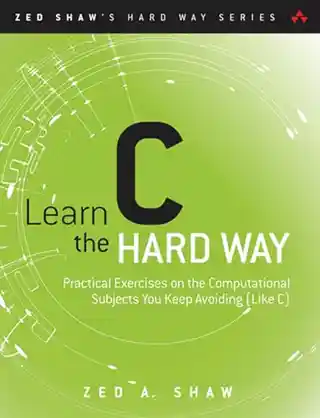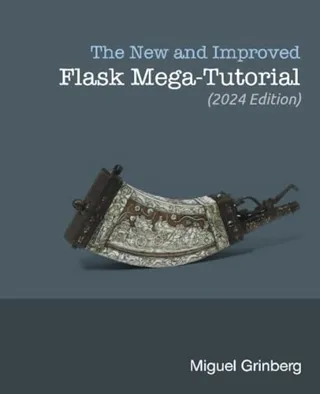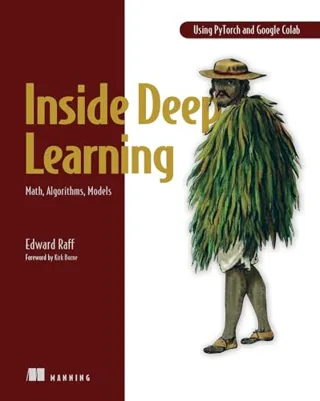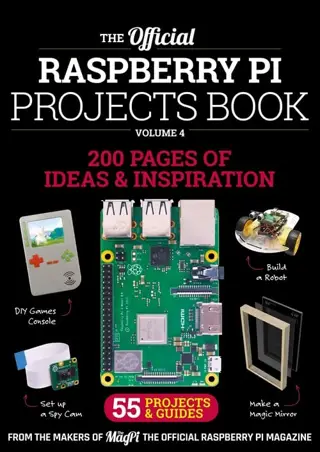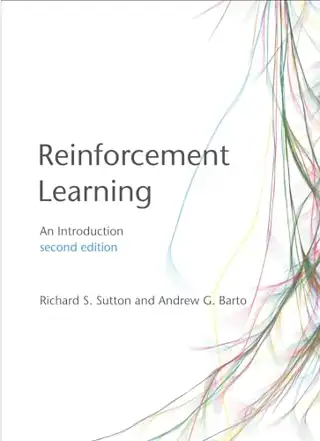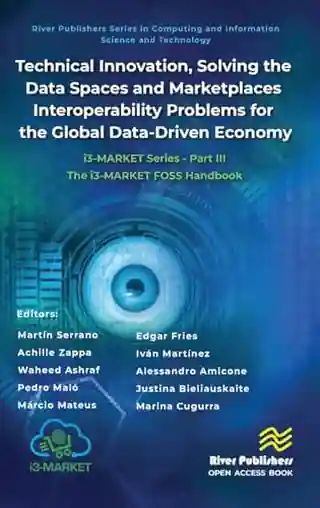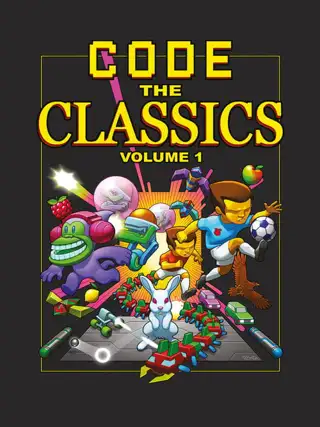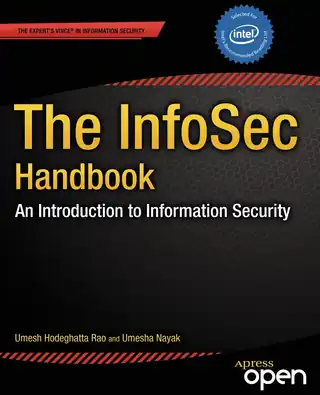You Will Learn C!
Zed Shaw has crafted the perfect course for the beginning C programmer eager to advance their skills in any language. Follow it and you will learn the many skills early and junior programmers need to succeed–just like the hundreds of thousands of programmers Zed has taught to date! You bring discipline, commitment, persistence, and experience with any programming language; the author supplies everything else.
In Learn C the Hard Way, you’ll learn C by working through 52 brilliantly crafted exercises. Watch Zed Shaw’s teaching video and read the exercise. Type his code precisely. (No copying and pasting!) Fix your mistakes. Watch the programs run. As you do, you’ll learn what good, modern C programs look like; how to think more effectively about code; and how to find and fix mistakes far more efficiently. Most importantly, you’ll master rigorous defensive programming techniques, so you can use any language to create software that protects itself from malicious activity and defects.
Through practical projects you’ll apply what you learn to build confidence in your new skills. Shaw teaches the key skills you need to start writing excellent C software, including
- Setting up a C environment
- Basic syntax and idioms
- Compilation, make files, and linkers
- Operators, variables, and data types
- Program control
- Arrays and strings
- Functions, pointers, and structs
- Memory allocation
- I/O and files
- Libraries
- Data structures, including linked lists, sort, and search
- Stacks and queues
- Debugging, defensive coding, and automated testing
- Fixing stack overflows, illegal memory access, and more
- Breaking and hacking your own C code
It’ll Be Hard at First. But Soon, You’ll Just Get It–And That Will Feel Great!
This tutorial will reward you for every minute you put into it. Soon, you’ll know one of the world’s most powerful programming languages. You’ll be a C programmer.
- Title
- Learn C the Hard Way
- Subtitle
- Practical Exercises on the Computational Subjects You Keep Avoiding (Like C)
- Publisher
- Addison-Wesley Professional
- Author(s)
- Zed A. Shaw
- Published
- 2015-08-10
- Edition
- 1
- Format
- eBook (pdf, epub, mobi)
- Pages
- 842
- Language
- English
- ISBN-10
- 9353065720
- ISBN-13
- 9789353065720
- License
- Read online for free
- Book Homepage
- Free eBook, Errata, Code, Solutions, etc.
About This eBook
Title Page
Copyright Page
Contents
Acknowledgments
This Book Is Not Really about C
The Undefined Behaviorists
C Is a Pretty and Ugly Language
What You Will Learn
How to Read This Book
The Videos
The Core Competencies
Reading and Writing
Attention to Detail
Spotting Differences
Planning and Debugging
Exercise 0. The Setup
Linux
Mac OS X
Windows
Text Editor
Do Not Use an IDE
Exercise 1. Dust Off That Compiler
Breaking It Down
What You Should See
How to Break It
Extra Credit
Exercise 2. Using Makefiles to Build
Using Make
What You Should See
How to Break It
Extra Credit
Exercise 3. Formatted Printing
What You Should See
External Research
How to Break It
Extra Credit
Exercise 4. Using a Debugger
GDB Tricks
GDB Quick Reference
LLDB Quick Reference
Exercise 5. Memorizing C Operators
How to Memorize
The List of Operators
Exercise 6. Memorizing C Syntax
The Keywords
Syntax Structures
A Word of Encouragement
A Word of Warning
Exercise 7. Variables and Types
What You Should See
How to Break It
Extra Credit
Exercise 8. If, Else-If, Else
What You Should See
How to Break It
Extra Credit
Exercise 9. While-Loop and Boolean Expressions
What You Should See
How to Break It
Extra Credit
Exercise 10. Switch Statements
What You Should See
How to Break It
Extra Credit
Exercise 11. Arrays and Strings
What You Should See
How to Break It
Extra Credit
Exercise 12. Sizes and Arrays
What You Should See
How to Break It
Extra Credit
Exercise 13. For-Loops and Arrays of Strings
What You Should See
Understanding Arrays of Strings
How to Break It
Extra Credit
Exercise 14. Writing and Using Functions
What You Should See
How to Break It
Extra Credit
Exercise 15. Pointers, Dreaded Pointers
What You Should See
Explaining Pointers
Practical Pointer Usage
The Pointer Lexicon
Pointers Aren’t Arrays
How to Break It
Extra Credit
Exercise 16. Structs And Pointers to Them
What You Should See
Explaining Structures
How to Break It
Extra Credit
Exercise 17. Heap and Stack Memory Allocation
What You Should See
Heap versus Stack Allocation
How to Break It
Extra Credit
Exercise 18. Pointers to Functions
What You Should See
How to Break It
Extra Credit
Exercise 19. Zed’s Awesome Debug Macros
The C Error-Handling Problem
The Debug Macros
Using dbg.h
What You Should See
How the CPP Expands Macros
Extra Credit
Exercise 20. Advanced Debugging Techniques
Debug Printing versus GDB
A Debugging Strategy
Extra Credit
Exercise 21. Advanced Data Types and Flow Control
Available Data Types
Type Modifiers
Type Qualifiers
Type Conversion
Type Sizes
Available Operators
Math Operators
Data Operators
Logic Operators
Bit Operators
Boolean Operators
Assignment Operators
Available Control Structures
Extra Credit
Exercise 22. The Stack, Scope, and Globals
ex22.h and ex22.c
ex22_main.c
What You Should See
Scope, Stack, and Bugs
How to Break It
Extra Credit
Exercise 23. Meet Duff’s Device
What You Should See
Solving the Puzzle
Why Bother?
Extra Credit
Exercise 24. Input, Output, Files
What You Should See
How to Break It
The I/O Functions
Extra Credit
Exercise 25. Variable Argument Functions
What You Should See
How to Break It
Extra Credit
Exercise 26. Project logfind
The logfind Specification
Exercise 27. Creative and Defensive Programming
The Creative Programmer Mind-Set
The Defensive Programmer Mind-Set
The Eight Defensive Programmer Strategies
Applying the Eight Strategies
Never Trust Input
Prevent Errors
Fail Early and Openly
Document Assumptions
Prevention over Documentation
Automate Everything
Simplify and Clarify
Question Authority
Order Is Not Important
Extra Credit
Exercise 28. Intermediate Makefiles
The Basic Project Structure
Makefile
The Header
The Target Build
The Unit Tests
The Cleaner
The Install
The Checker
What You Should See
Extra Credit
Exercise 29. Libraries and Linking
Dynamically Loading a Shared Library
What You Should See
How to Break It
Extra Credit
Exercise 30. Automated Testing
Wiring Up the Test Framework
Extra Credit
Exercise 31. Common Undefined Behavior
UB 20
Common UBs
Exercise 32. Double Linked Lists
What Are Data Structures
Making the Library
Doubly Linked Lists
Definition
Implementation
Tests
What You Should See
How to Improve It
Extra Credit
Exercise 33. Linked List Algorithms
Bubble and Merge Sorts
The Unit Test
The Implementation
What You Should See
How to Improve It
Extra Credit
Exercise 34. Dynamic Array
Advantages and Disadvantages
How to Improve It
Extra Credit
Exercise 35. Sorting and Searching
Radix Sort and Binary Search
C Unions
The Implementation
RadixMap_find and Binary Search
RadixMap_sort and radix_sort
How to Improve It
Extra Credit
Exercise 36. Safer Strings
Why C Strings Were a Horrible Idea
Using bstrlib
Learning the Library
Exercise 37. Hashmaps
The Unit Test
How to Improve It
Extra Credit
Exercise 38. Hashmap Algorithms
What You Should See
How to Break It
Extra Credit
Exercise 39. String Algorithms
What You Should See
Analyzing the Results
Extra Credit
Exercise 40. Binary Search Trees
How to Improve It
Extra Credit
Exercise 41. Project devpkg
What Is devpkg?
What We Want to Make
The Design
The Apache Portable Runtime
Project Layout
Other Dependencies
The Makefile
The Source Files
The DB Functions
The Shell Functions
The Command Functions
The devpkg Main Function
The Final Challenge
Exercise 42. Stacks and Queues
What You Should See
How to Improve It
Extra Credit
Exercise 43. A Simple Statistics Engine
Rolling Standard Deviation and Mean
Implementation
How to Use It
Extra Credit
Exercise 44. Ring Buffer
The Unit Test
What You Should See
How to Improve It
Extra Credit
Exercise 45. A Simple TCP/IP Client
Augment the Makefile
The netclient Code
What You Should See
How to Break It
Extra Credit
Exercise 46. Ternary Search Tree
Advantages and Disadvantages
How to Improve It
Extra Credit
Exercise 47. A Fast URL Router
What You Should See
How to Improve It
Extra Credit
Exercise 48. A Simple Network Server
The Specification
Exercise 49. A Statistics Server
Specification
Exercise 50. Routing the Statistics
Exercise 51. Storing the Statistics
The Specification
Exercise 52. Hacking and Improving Your Server
Next Steps
Index
Where are the Companion Content Files?
Code Snippets